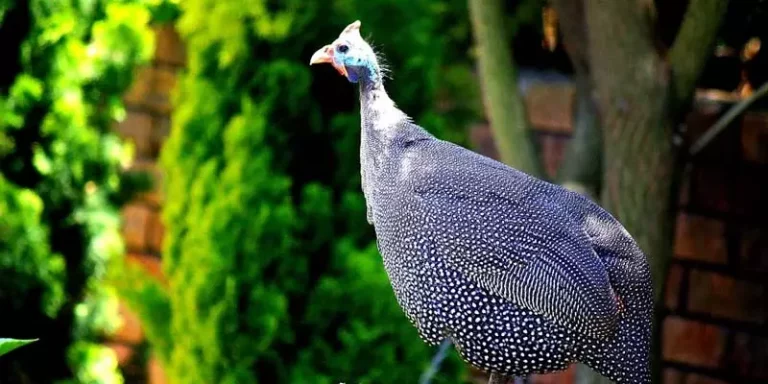The most common question I get from people is “how do you keep your guinea fowl from fighting?” or “is it possible to raise them without ever having to separate them?”
Unfortunately, the answer is no. Guinea fowl cannot live alone. For those of you who are interested in getting a pair of guinea fowl, here are some things to consider when purchasing your birds.
What Is a Guinea Fowl?
Guinea fowl are a type of bird that is native to Africa. They were domesticated in the late 1800s and have been used as both food and pets since then. Guinea fowl can be quite noisy, making a lot of noise during mating season, which makes them popular among those who want to enjoy their company but not their sound.
They are a type of domestic chicken that is dark in color and has a long, thick neck. These birds have an average life expectancy of 15-20 years.
How Do You Get a Pair Of Guinea Fowl?
If you want to get a pair of guinea fowl, the first thing that you need to do is decide what type of guinea fowl you would like.
There are three types:
- Gold guinea fowl
- Black guinea fowl
- White guinea fowl
How Do You Keep Your Guinea Fowl From Fighting?
The best way to keep your guinea fowl from fighting is to introduce them slowly. Introduce your guinea fowl after they have been separated, and introduce them one at a time. There are some things you can do to ensure this doesn’t happen though, like making sure you place the birds in separate enclosures for the first few days. Guinea fowl also tend to be territorial, so make sure you provide enough space for them to spread out and explore.
Guinea fowl need company, so don’t be afraid to adopt more than one pair. They are social birds and it’s not unusual for them to establish a pecking order among themselves, but that doesn’t mean they won’t get along with other guinea fowl of different sexes or age groups.
Can Guinea Fowl Live On Their Own?
In the wild, guinea fowl live in large flocks of up to 100 birds. They are omnivorous, meaning they eat both plants and animals. They can be found in savannahs, grasslands, and forests. Guinea fowl have a short lifespan of 5-6 years, but they lay a lot of eggs – usually around 8-12 per day for their entire life.
Guinea fowl breed year-round, but it is best if you start your breeding cycle early so that the young are fully weaned before the onset of winter. The average gestation period is 21 days and each egg hatches usually 12 hours after it was laid; this means that you should expect to hatch about 80% of your eggs within 24 hours (if you don’t want to hatch them all at once).
I recommend purchasing your guinea fowl as babies or chicks from a reputable breeder. This way, you know what sex they will be when they reach adulthood and whether or not they’re good with kids. You also get to pick out the color or type of guinea fowl you want! And who doesn’t love customizing their pet?
Why Should I Keep My Guinea Fowl Together?
Guinea fowl need companionship to thrive. Living with other guinea fowls makes them happy.
In addition, being in a group offer them protection from predators. In a group, they can keep an eye for predators on land and in the air.
If you want your guinea fowl to live happily, then you should keep them together with other guinea fowl.
How Many Guinea Fowl Should I Get?
The number of guinea fowl you should get depends on how big your backyard is and what type of climate you live in. The minimum amount for a small backyard is two guinea fowl but most people recommend at least four.
If you want to keep them from flying away, you’ll want to increase the number of birds.
Conclusion
Guinea fowl need a lot of space to roam and fly. They need to be kept in pairs or groups of six or more because they are territorial animals. If you have a small yard, you will want to consider keeping them in a coop. If you don’t want to keep your Guinea Fowl in a coop, consider finding a friend who has some extra guinea fowl and keeping them together.


